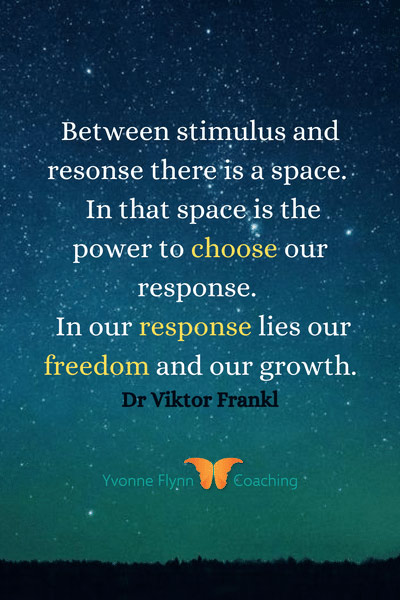There are some books that have a lasting and profound impact on the reader. Dr Viktor Frankl’s ‘Man’s Search for Meaning’ is one of those books for me. Another book, which surprisingly escaped my radar until recently, is ‘The Choice‘ by Dr Edith Eger.
Both books share similar, yet deeply personal and individual experiences of imprisonment during the Holocaust.
A core message of ‘Man’s Search For Meaning’ can be summarised as follows:

Even in the darkest moments, Dr Frankl came to realise that no matter how extreme or difficult the circumstances, he retained the freedom to choose how to respond to his suffering. He saw this not merely as an option, but as his and every person’s responsibility to choose ‘the way in which he bears his burden’.
Frankl believed that responsibility and freedom were two sides of the same coin. In fact, he suggested there should be a Statue of Responsibility placed on the West Coast of the US to balance the Statue of Liberty on the East Coast.
Dr Edith Eger also shares her amazing story of survival and triumph over the horror and brutality she experienced in Auschwitz. Her powerful message is about choice, hope and forgiveness.
Personal Power
Responsibility Choice Freedom
These three powerful themes run through both incredible stories.
When we take responsibility for our choices, we experience freedom.
When we take responsibility for our thoughts, our actions, our choices, we step into our personal power. We stop looking externally to apportion blame for how we feel or what we experience.
We stop blaming the weather for ruining our day, our boss for making our life miserable at work or the politicians for destroying the economy. Of course, the weather might be awful, our boss might be a bully and the politicians might be inept at running the country. However, we take responsibility when we ‘own’ how we respond to each and every trigger, every stimulus.
Our Choice
We can choose to be happy, sad, angry, disappointed, joyful etc about the weather or anything else. We get to choose. We may not be able to change the situation or events, but we can choose our response. No-one can take this away from us. This is personal power. This is freedom.
“When we are no longer able to change a situation, we are challenged to change ourselves”.
Dr viktor frankl
Dr Eger’s book, ‘The Choice’, reminds us that we always have a choice – we can choose to be our own jailors, or we can be free.
Freedom is about choice. To be truly free, Dr Eger guides us to choose:
• Compassion
• Humour
• Optimism
• Intuition
• Curiosity
• Self-Expression
Throughout the book, we are reminded of her mother’s words, that helped her not only survive, but truly thrive in her life after Auschwitz:
Just remember, no one can take away from you what you’ve put in your own mind.
Hope
“In the end, it’s not what happens to us that matters most – it’s what we choose to do with it.“
Dr Edith Eger
Thankfully most of us will never have to endure the suffering that Dr Frankl and Dr Eger were subjected to. However, we can apply their wisdom to our own life, in the way we handle our day-to-day challenges and difficulties. Some situations we face may be extremely difficult, tragic even. It might seem impossible to detect any sense of choice or control. But even in the darkest of times, there is hope.
When we find ourselves in a situation that causes us to feel stuck, overwhelmed or a desire to change, one of the most powerful questions we can ask ourselves is ‘what am I choosing?’. By pausing and taking the time to connect with our choice, we receive the gift of freedom.



